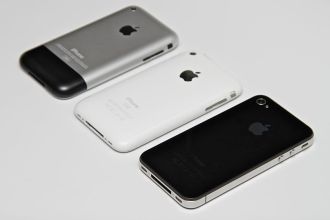 With millions of smartphones sold each week, the market is quickly becoming saturated and upgrade cycles are likely to slow down, but while this might be bad news for phone makers and carriers, some outfits will cash in on second-hand phones.
With millions of smartphones sold each week, the market is quickly becoming saturated and upgrade cycles are likely to slow down, but while this might be bad news for phone makers and carriers, some outfits will cash in on second-hand phones.
According to research firm Sanford C. Bernstein, the global trade in used smartphones might be the next big thing.
“Our analysis suggests that the used smartphone market is poised to explode – we estimate that the market will grow from 53 million to 257 million units over the next 5 years,” said Toni Sacconaghi of Sanford C. Bernstein. “By 2018, we estimate that used phones will cannibalise eight percent of total new smartphone sales, up from three percent in 2012.”
The percentages don’t sound very impressive, but the unit volume does. At the moment, most used phones are collected in the US and sold in emerging markets. Apple’s iPhones are particularly hot and there is plenty of demand in emerging markets, as many customers simply can’t afford new iPhones – and even older models are status symbols in less affluent markets.
Sacconaghi found that iPhones see a lot less depreciation than Samsung’s Galaxy S series phones. Even broken iPhones are selling, which isn’t the case with other brands. Carriers are also joining the fun and they are offering trade-in programmes that actually pay more for phones locked to a competitor’s network. In some cases, US carriers are willing to pay twice as much to get their hands on a phone locked to a competitor’s network.
Piper Jaffray analyst and Apple guru Gene Munster also concluded that iPhones have better resale values that Galaxy phones.
Apple’s build quality is second to none, so most iPhones stand up to punishment better than plasticky Samsungs. Brand snobbery is another factor, but Samsung has some trump cards as well. Galaxies have an easily replacable back cover and a user-replacable battery, which is not the case with iPhones.
Apple is reportedly mulling a trade-in programme of its own, through its stores, reports Forbes.





